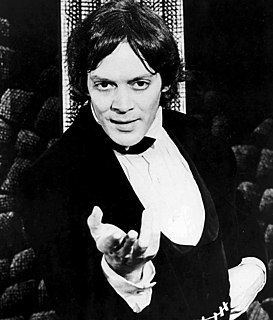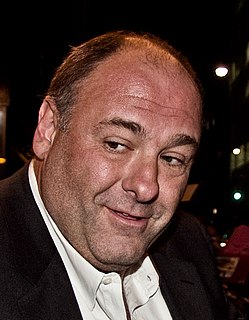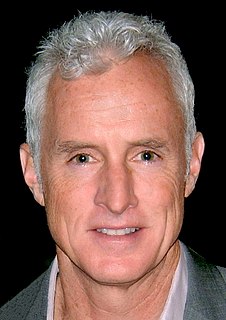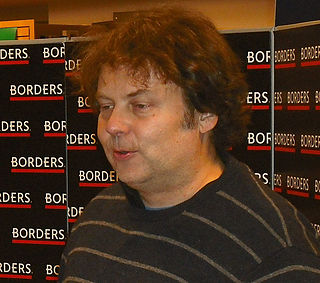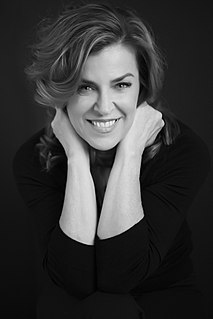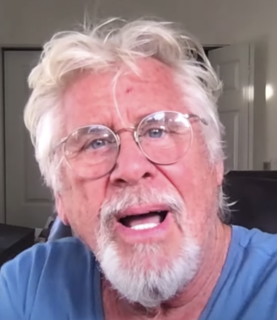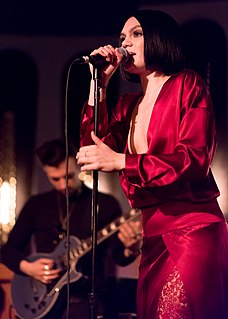A Quote by Steven Knight
When I was probably about 10 or 11, and I found it was simply something I could do. When you're at school and you do something and you get praised for it, you think, "Oh, right, well I'll do that." From then on, I always thought I'd be a writer. I thought novels at first, and then I sort of naturally drifted into TV.
Related Quotes
It was a sort of organic thing. I never went, 'I must be an actress.' I thought, 'I think I could do this. I think I could be good at this.' I would just get sort of hungry when I read something I thought I can do well, whether it was in books or in scripts or if I saw a certain movie. It sort of happened quite naturally.
My parents thought, 'Oh, my God! What's wrong with him? He's possessed or something.' All of a sudden, I stood up and started saying my lines. From then on, that was it. I knew there was something special about the theater for me, something beyond the regular reality, something that I could get into and transcend and become something other than myself.
I dabbled a little bit in acting in high school, and then I forgot about it completely. And then at about 25 I went to a class. I don't think anybody in my family thought it was an intelligent choice. I don't think anybody thought I'd succeed, which is understandable. I think they were just happy that I was doing something.
I dabbled a little bit in acting in high school and then I forgot about it completely. And then at about twenty-five I went to a class. I don't think anybody in my family thought it was an intelligent choice. I don't think anybody thought I'd succeed, which is understandable. I think they were just happy that I was doing something.
I do voiceovers, but being on-camera and selling something? I wasn't really interested. And then I thought, well, wait a minute. Everybody's selling something. When you turn on the tube... And then if you go to Europe or Asia, everyone is selling something. All the guys that don't want to be seen selling something here are selling something there. So I thought what the hell?
It felt really radically uncomfortable. And I was really not sure at first about releasing that body of work. But then the more I thought about it, the more I thought that that position, that location, is something that's just sort of interesting in its own right, as an experience, as a process. Again, we're talking about this rubric, this set of rules, this grid that I toss on top of different locations globally. This is what came out of Africa.
...what's always exciting is when you hear something amazing when you least expected it. Every now and then I'll hear something for the first time that forces me to re-examine my frames of reference, and re-consider musical parameters in general, and that's wonderful . And what's even more wonderful in a way, is when you hear something that you know, and already think you have an opinion about, and then suddenly discover that it isn't what you thought it was, but something quite different, which makes it just as surprising as if you'd never heard it before. That's REALLY great!
When I got home from hospital, and I was in a wheelchair in a plaster body cast, an aeroplane flew over. And I thought to myself, 'Well, if I can't walk, then I might as well fly.' And I was lifted into the aeroplane for the first time. And when I took the controls of the aeroplane, I knew this was something I could do. I thought, 'I can fly.'
I played a lot of serious parts in a lot of TV movies and early miniseries but what happens is that you get sort of locked into "Oh no, he's a serious actor." Well, I was a serious actor for nine years or 10 years and then I get into comedy and everybody said, "Oh no, he's funny. He can do comedy," and then all of a sudden, you're just a comedy guy.
In the beginner's mind there is no thought, "I have attained something." All self-centered thoughts limit our vast mind. When we have no thought of achievement, no thought of self, we are true beginners. Then we can really learn something. The beginner's mind is the mind of compassion. When our mind is compassionate, it is boundless. Dogen-zenji, the founder of our school, always emphasized how important it is to resume our boundless original mind. Then we are always true to ourselves, in sympathy with all beings, and can actually practice.


